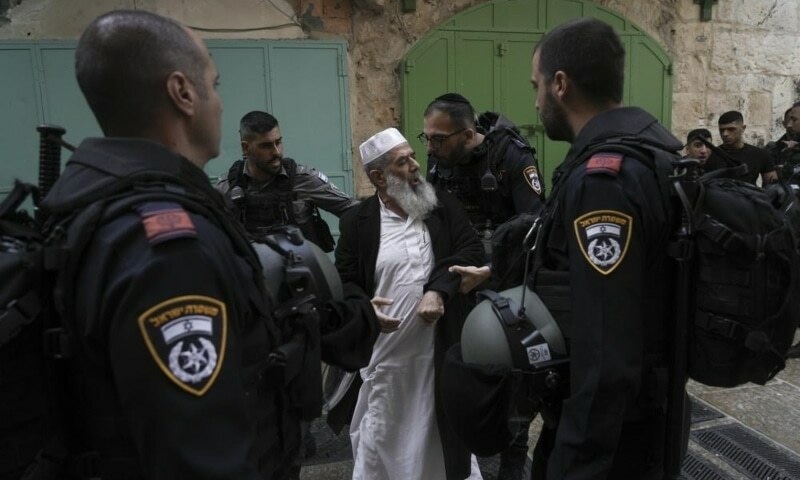Two days after massive unrest at the Al-Aqsa Mosque compound, over 20 Israelis and Palestinians were injured in a series of events in and around Jerusalem’s flashpoint.
More than 170 people have been injured in conflicts since Friday when the Jewish holiday of Passover fell on the same day as the Muslim holy month of Ramadan. Violence in Israel and the occupied West Bank has killed 36 people between late March and early this month.
Palestinian activists gathered stones early on Sunday morning within the mosque enclosure, just before Jewish tourists arrived, according to police.
Temple Mount, the holiest spot in Judaism and Islam’s third-holiest holy, is open to visitors but not to worship.
In order to “remove” the protesters and “re-establish order,” the police announced they had entered the property.
As many as five people were taken to area hospitals, according to the Palestinian Red Crescent. Rubber-coated steel bullets reportedly injured several.
Early on Sunday morning, an AFP team stationed outside the compound’s entrance observed armed police escorting barefoot Jewish worshippers out of the building.
Palestinian teenagers hurled rocks at passing buses outside the Old City, in Israeli-annexed East Jerusalem, injuring seven persons, Shaare Zedek hospital reported.
Two Israeli buses drove down a route in Jerusalem’s Old City with their windows broken and their sides pelted with rocks, according to a video given by the police. A total of 18 Palestinians have been taken into custody, according to the police.
Israeli aggression in the Al-Aqsa compound is a “blatant attack on our sacred places,” according to senior Palestinian leader Hussein Al-Sheikh, who called on the international community to step in.
Israel has been told that “Al-Aqsa is ours and ours alone,” according to Hamas’s leader in Gaza, the Palestinian enclave’s de facto capital.
We will not be intimidated by Israeli brutality and violence,” Ismail Haniyeh, the head of the Palestinian Authority, stated in a statement.
Palestinian mosques in occupied east Jerusalem began broadcasting appeals for worshipers to travel to the Al-Aqsa site on Sunday morning.
Israeli seaside city of Tel Aviv was the scene of two deadly Palestinian assaults in late March and early April, as well as large arrests by Israeli authorities in the occupied West Bank, following weeks of rising tensions.
Since March 22, at least 14 people have been slain in assaults on Israel, including a shooting rampage in the Orthodox Jewish community of Bnei Brak, which is located in the larger Tel Aviv area.
Assailants targeting Israelis have claimed the lives of twenty-two Palestinians in the same time, according to AFP.
Israeli police battled with Palestinians on Friday morning, including inside the Al-Aqsa Mosque, eliciting widespread condemnation from Muslim countries throughout the world. About 150 individuals were injured in the fighting.
Exactly one year after confrontations in and around the mosque compound led to an 11-day conflict between Israel and Palestinian militants in Gaza, the United Nations has issued an appeal for calm.
During his Sunday homily, Pope Francis pleaded for open access to Jerusalem’s sacred sites and prayed for a lasting peace in the city.
It was in this spirit that he wished for everyone in the Holy City—both locals and visitors—to “experience the beauty of peace and dwell in brotherhood while mutually respecting each other’s rights,” as he remarked during his Easter message.
Unaffected by tensions, hundreds of Christians held an Easter march through the Old City of Jerusalem, passing through the Church of the Holy Sepulchre, believed to be the burial site of Jesus Christ.
Marching bands with drums and bagpipes led the procession into the church, where worshipers assembled for mass.


